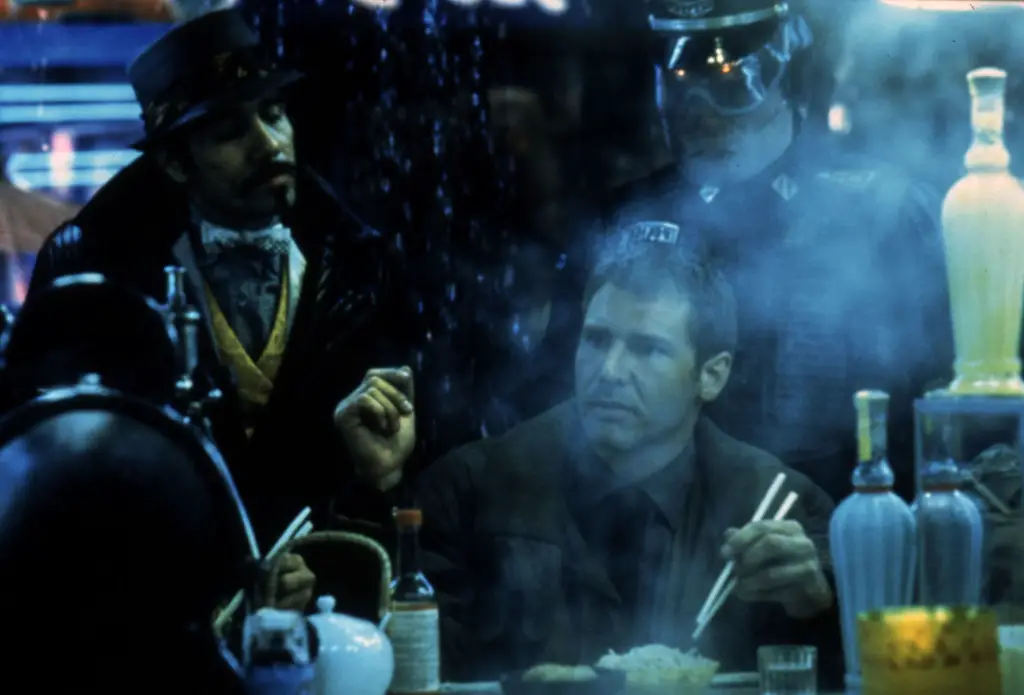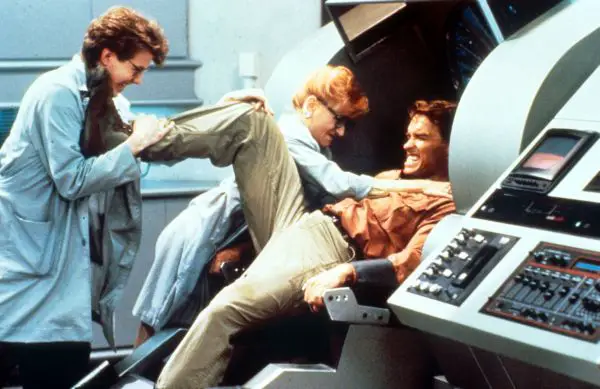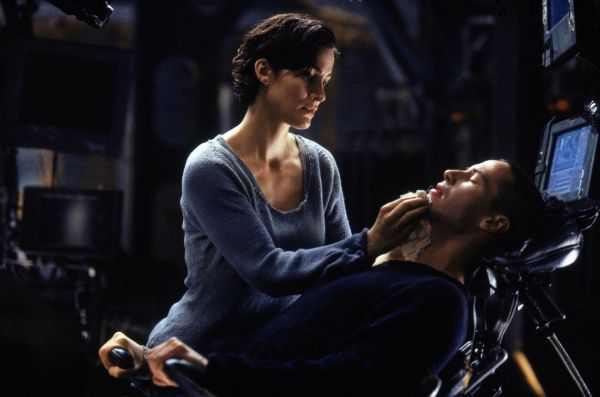6 Movies That Screw with your Sense of Reality

Manon de Reeper is the founder and CEO of Film…
6. The Truman Show (1998)
The Truman Show is the first great example of a crafted reality. Truman (Jim Carrey) lives in a bubble, unaware that his surroundings are very limited. He also isn’t aware he’s the subject of a very popular TV show named after him and that everyone around him is part of a cast. The story of The Truman Show is very much like Plato’s “Allegory of the Cave“, about “perceived reality” – Truman considers his reality to be the true reality as it’s the only reality he knows, but eventually, he has to learn that he was living in a fake reality, even if it was real to him. If you apply this idea on a smaller scale, if you take into consideration that your “perceived reality” is but a version of reality… To me it always puts my own problems into perspective.
In case you haven’t seen The Truman Show… Don’t watch the following video :p
5. Blade Runner (1982)
Is he a replicant? Is he not? Surely, it’s the questions everyone’s left with after watching Blade Runner. Blade Runner hints at the idea that perhaps Deckard is a replicant – an android, but you can’t ever really tell. How can we ever know for sure that we’re not organic robots ourselves?
4. Side Effects (2013)
Major spoilers ahead!
Side Effects isn’t really a particularly great movie. However, an interesting element of this movie was that it toys with the idea that mental illnesses are very easily faked. The definitions of mental illness are very inflexible, whereas people are. While people are all very different, we’re collectively trying to categorize people into boxes where they don’t always belong. The main character, Emily (Rooney Mara), pretends to have a disorder to get what she wants. Eventually, they find out it was an act, but somehow the creators of this film seriously undermined their own story by having the psychiatrist of the story (Jude Law) still diagnose her quickly, in the end, and ship her off. Unfortunate.
This movie reminded me a lot of the Rosenhan Experiment – an experiment done in the 1970s. Psychologist David Rosenhan asked a group of people to fake hallucinations. They were admitted to psychiatric hospitals:
All were admitted and diagnosed with psychiatric disorders. After admission, the pseudopatients acted normally and told staff that they felt fine and had not experienced any more hallucinations. All were forced to admit to having a mental illness and agree to take anti-psychotic drugs as a condition of their release.
Then, Rosenhan told psychiatric hospitals he was going to send them fake patients, whom the facilities would have to detect. In the end, he sent none, but the facilities “detected” 41 “fake” patients out of 193 new patients. The purpose of the study was to prove that our psychiatric system cannot distinguish sane from insane with the psychiatric labels we still use today. It’s pretty mind-bending.
3. Total Recall (1990)
Your perceived reality, as we discussed earlier, is also constructed by your memories. Movies that toy with the concept of memories and how they construct your reality are, among others, Total Recall. Total Recall is about Douglas Quaid (Arnold Schwarzenegger) who goes to Mars in a “memories vacation” – an organization that can implant memories in your brain that give you the memory of having gone on vacation but you’ve never truly been. However, it becomes clear that he has actually been to Mars before and his personal memories had been wiped. A campy story about resistance on Mars because of weird birth defects follows, but the point is that you can never be too sure of your memories – even in normal people with normally functioning brains, memories are deformed (by e.g. time). Again, this comes back to the concept of perceived reality.
Other movies that play with the idea of memories are Strange Days (1995), in which Lenny (Ralph Fiennes) sells illegal memory tapes (an underrated movie in my opinion); and probably most famously, Memento (2000). As I couldn’t find a good clip of the 1990 Total Recall, here’s a clip of Strange Days where the memory tapes are demonstrated.
2. Paprika (2006) & Inception (2010)
Everyone probably knows Inception (2010). Likely, fewer people know that the anime Paprika (2006) was Christopher Nolan’s inspiration for Inception. Both movies toy with the idea that you’re living in dreams, and in both movies, at a certain point, it becomes unclear whether you’re watching the dream or reality. Inception goes about it as a very serious action movie, and as you’d inspect, the anime is a lot less serious, but more extreme in the freedom of the dream. Nevertheless, both leave you with the question whether you’re living in a dream or reality.
Here’s Paprika‘s Trailer:
1. The Matrix (1999)
Maybe it’s an expected choice, but in my opinion, there’s no movie that screws with your idea of reality better than The Matrix. The fake world, the Matrix, is constructed in such a way that it’s very believable that we’re living in a virtual world, a generated world. No one’s aware about it except a select few, like Neo, who are taken from the Matrix and are “born” back into reality, which is a lot bleaker. The philosophy of The Matrix is heavily derived from the thought experiment called brain in a vat. This modern theory was based on Plato’s Allegory of the Cave (perceived reality) and René Descartes theory of the evil demon, a powerful creature that presents to your brain a complete illusion of the world, whereas in reality, there is no external world.
The brain in a vat is a modern adaptation that suggests that our brains are all in vats (quite literally shown in The Matrix where bodies (for their brains) are kept in vats, delivering power) by an (evil) external entity – a mad scientist, computer (like in The Matrix) or otherwise, linked to a computer, and our reality is simulated by that computer. We could experience our reality without there actually being one. To go even further – it’s been suggested that our skull is the vat, and that we get our impulses as if we’re linked to a computer, suggesting that we can never know whether what we see or believe is true. And there is no way of finding out whether our brains are in vats or not – which the characters in The Matrix obviously could.
Nevertheless, the forefather of this theory, Descartes, was the one who came up with the famous phrase “cogito ergo sum” – I think, therefore I am. Obviously, he was very much into thinking about our existence, but I find it somewhat ironic that this phrase and the idea of the evil demon came from the same man. Thinking, in my opinion, does not prove that we actually exist, at least not in the external world that we perceive.
If you think about it too long, it gets kinda depressing, actually.
What do you think of my list? Am I missing any movies?
Which movie made you doubt your existence or sense of reality most? What are your ideas about reality, had you heard about the theories I discussed above before? [/alert]
P.S. if you enjoyed this post, I’d really appreciate it if you’d share it!
Does content like this matter to you?
Become a Member and support film journalism. Unlock access to all of Film Inquiry`s great articles. Join a community of like-minded readers who are passionate about cinema - get access to our private members Network, give back to independent filmmakers, and more.
Manon de Reeper is the founder and CEO of Film Inquiry, and a screenwriter/producer. Her directorial debut, a horror short film, is forthcoming in 2021.


















